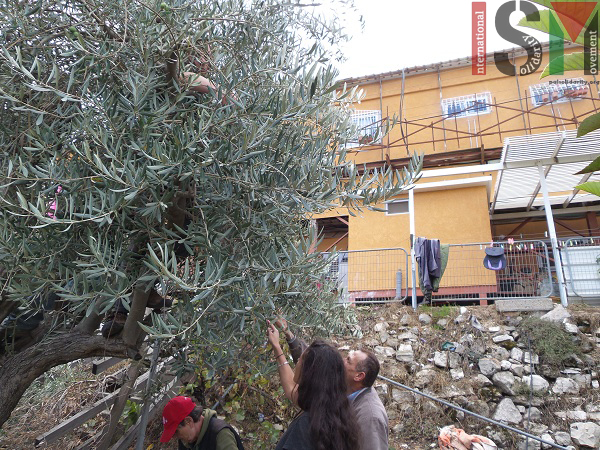Tag: Settlers
-
Palestinian man successfully harvests olives for the first time in 14 years
20th October 2014 | International Solidarity Movement, Khalil team | Tel Rumeida, Occupied Palestine Today in al-Khalil (Hebron) Hashem Azzeh, a Palestinian man living in the Tel Rumeida neighborhood was able to successfully harvest his olives, on a certain part of his land, for the first time in 14 years. Hashem and his family live in…
-
Mosque burnt in apparent price tag attack
15th October 2014 | International Solidarity Movement, Nablus team | Aqraba, Occupied Palestine In the early hours of Tuesday morning, a group of Zionist settlers from the illegal settlements close to Aqraba near Nablus, set fire to a mosque in the outskirts of the village. The investigation so far shows that the building was set on fire at approximately…
-
Jewish holiday leads to large influx of settlers, zionist tourists, and Israeli soldiers
12th October 2014 | International Solidarity Movement, Khalil team | Hebron, Occupied Palestine Today in al-Khalil (Hebron), as part of the Jewish holiday of Sukkot, thousands of settlers and Zionist tourists descended upon the city. The Israeli military presence in Hebron, which is already a large an oppressive part of everyday life, greatly increased. Hebron is the…



